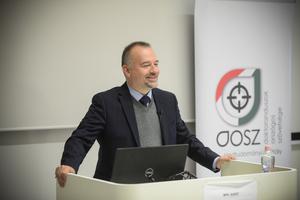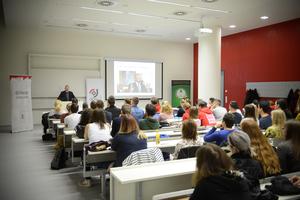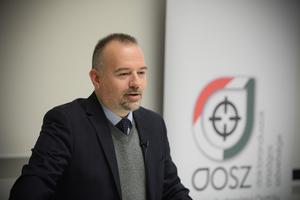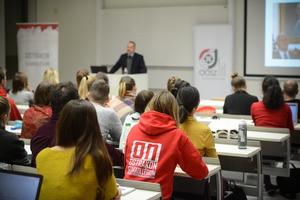The political impact of the recognition of Jerusalem as capital of Israel by the United States is still unclear at this moment - said the participants of an event organized at NUPS by the Ostrakon special college, the Doctorates’ Council and the International Law Scientific Students’ Association. Mr. Tamás Lattman, international lawyer and lecturer at NUPS shared his thoughts with the audience in the topic.
Last December, the President of the United States announced the recognition of Jerusalem as the capital of Israel and also ordered the relocation of the US Embassy in Israel from Tel Aviv to Jerusalem. The latter was completed this year in May. The Embassy is currently established at a temporary location, the new one will be soon built by the border of East and West Jerusalem. The American diplomacy was represented by Ivanka Trump, First Daughter and Advisor to the President. The announcement and the opening ceremony was highly criticized in the past few months. Additionally, several European countries refused to be present at the ceremony because they disagree with the US’ unilateral decision. They believe that this action may end the peace agreements established in 1993.
According to Tamás Lattman, associate professor, we still don’t see the political consequences of this controversial decision, it is hard to asses whether it was a wrong decision or not. In his presentation, the international lawyer briefly described the history of Jerusalem after 1945 which was mainly dominated by the Israeli-Palestinian conflict. The majority of the European states was always seeking a balanced relationship with both parties, while the United States has never been able to remain neutral even though they have not officially recognized Jerusalem as capital of Israel for decades. However, from the international law’s perspective, there is no obligation to recognize it, this announcement can clearly be interpreted as a political act. The associate professor added that in 1947 there was a plan in which Jerusalem was envisaged as a divided, international city. This plan however failed very soon, because the first Arab-Israeli war strongly decreased the chances of agreement. This solution was not accepted by Israel and in 1947 they declared Jerusalem the “complete and united” capital of Israel. Israel later, in 1980 passed the Jerusalem Law as Basic Law. Still in that year, the United Nations Security Council adopted two resolutions in which the members declared that Israel alone cannot exercise exclusive authority over Jerusalem. The United States didn’t veto the resolutions, they abstained from voting. Nevertheless, Israel did not consider these decisions.
US President Donald Trump with his announcement last year has created a new political situation as his decision to recognize Jerusalem is considered a bold and dangerous move. According to Mr. Lattmann, this process may be dangerous indeed, but we may need a few more years to see the exact impacts of this change. The expert also described to European position in this question. He said that, at the end, the European Council has not accepted a common statement on the disapproval of Trump’s decisions because the EU member states were not in absolute consensus. “The question therefore remains within the responsibility of the member states, thus the Hungarian government has the possibility to keep its sovereign position” - said the associate professor. He further added that Hungary is not planning yet the relocation of its embassy to Jerusalem. At the same time, it is interesting to note that Hungary was one of the four EU member states that were present during the opening ceremony of the new US Embassy in Jerusalem.





